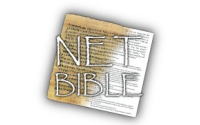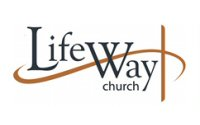June 10 – 2 Kings 11 and 12 from the Old Testament
2 Kings 11 and 12 – Athaliah is Eliminated
11:1 When Athaliah the mother of Ahaziah saw that her son was dead, she was determined to destroy the entire royal line. 11:2 So Jehosheba, the daughter of King Joram and sister of Ahaziah, took Ahaziah’s son Joash and sneaked him away from the rest of the royal descendants who were to be executed. She hid him and his nurse in the room where the bed covers were stored. So he was hidden from Athaliah and escaped execution. 11:3 He hid out with his nurse in the Lord’s temple for six years, while Athaliah was ruling over the land.
11:4 In the seventh year Jehoiada summoned the officers of the units of hundreds of the Carians and the royal bodyguard. He met with them in the Lord’s temple. He made an agreement with them and made them swear an oath of allegiance in the Lord’s temple. Then he showed them the king’s son. 11:5 He ordered them, “This is what you must do. One third of the unit that is on duty during the Sabbath will guard the royal palace. 11:6 Another third of you will be stationed at the Foundation Gate. Still another third of you will be stationed at the gate behind the royal guard. You will take turns guarding the palace. 11:7 The two units who are off duty on the Sabbath will guard the Lord’s temple and protect the king. 11:8 You must surround the king. Each of you must hold his weapon in his hand. Whoever approaches your ranks must be killed. You must accompany the king wherever he goes.”
11:9 The officers of the units of hundreds did just as Jehoiada the priest ordered. Each of them took his men, those who were on duty during the Sabbath as well as those who were off duty on the Sabbath, and reported to Jehoiada the priest. 11:10 The priest gave to the officers of the units of hundreds King David’s spears and the shields that were kept in the Lord’s temple. 11:11 The royal bodyguard took their stations, each holding his weapon in his hand. They lined up from the south side of the temple to the north side and stood near the altar and the temple, surrounding the king. 11:12 Jehoiada led out the king’s son and placed on him the crown and the royal insignia. They proclaimed him king and poured olive oil on his head. They clapped their hands and cried out, “Long live the king!”
11:13 When Athaliah heard the royal guard shout, she joined the crowd at the Lord’s temple. 11:14 Then she saw the king standing by the pillar, according to custom. The officers stood beside the king with their trumpets and all the people of the land were celebrating and blowing trumpets. Athaliah tore her clothes and screamed, “Treason, treason!” 11:15 Jehoiada the priest ordered the officers of the units of hundreds, who were in charge of the army, “Bring her outside the temple to the guards. Put the sword to anyone who follows her.” The priest gave this order because he had decided she should not be executed in the Lord’s temple. 11:16 They seized her and took her into the precincts of the royal palace through the horses’ entrance. There she was executed.
11:17 Jehoiada then drew up a covenant between the Lord and the king and people, stipulating that they should be loyal to the Lord. 11:18 All the people of the land went and demolished the temple of Baal. They smashed its altars and idols to bits. They killed Mattan the priest of Baal in front of the altar. Jehoiada the priest then placed guards at the Lord’s temple. 11:19 He took the officers of the units of hundreds, the Carians, the royal bodyguard, and all the people of land, and together they led the king down from the Lord’s temple. They entered the royal palace through the Gate of the Royal Bodyguard, and the king sat down on the royal throne. 11:20 All the people of the land celebrated, for the city had rest now that they had killed Athaliah with the sword in the royal palace.
Joash’s Reign over Judah
11:21 (12:1) Jehoash was seven years old when he began to reign. 12:1 (12:2) In Jehu’s seventh year Jehoash became king; he reigned for forty years in Jerusalem. His mother was Zibiah, who was from Beer Sheba. 12:2 Throughout his lifetime Jehoash did what the Lord approved, just as Jehoiada the priest taught him. 12:3 But the high places were not eliminated; the people continued to offer sacrifices and burn incense on the high places.
12:4 Jehoash said to the priests, “I place at your disposal all the consecrated silver that has been brought to the Lord’s temple, including the silver collected from the census tax, the silver received from those who have made vows, and all the silver that people have voluntarily contributed to the Lord’s temple. 12:5 The priests should receive the silver they need from the treasurers and repair any damage to the temple they discover.”
12:6 By the twenty-third year of King Jehoash’s reign the priests had still not repaired the damage to the temple. 12:7 So King Jehoash summoned Jehoiada the priest along with the other priests, and said to them, “Why have you not repaired the damage to the temple? Now, take no more silver from your treasurers unless you intend to use it to repair the damage.” 12:8 The priests agreed not to collect silver from the people and relieved themselves of personal responsibility for the temple repairs.
12:9 Jehoiada the priest took a chest and drilled a hole in its lid. He placed it on the right side of the altar near the entrance of the Lord’s temple. The priests who guarded the entrance would put into it all the silver brought to the Lord’s temple. 12:10 When they saw the chest was full of silver, the royal secretary and the high priest counted the silver that had been brought to the Lord’s temple and bagged it up. 12:11 They would then hand over the silver that had been weighed to the construction foremen assigned to the Lord’s temple. They hired carpenters and builders to work on the Lord’s temple, 12:12 as well as masons and stonecutters. They bought wood and chiseled stone to repair the damage to the Lord’s temple and also paid for all the other expenses. 12:13 The silver brought to the Lord’s temple was not used for silver bowls, trimming shears, basins, trumpets, or any kind of gold or silver implements. 12:14 It was handed over to the foremen who used it to repair the Lord’s temple. 12:15 They did not audit the treasurers who disbursed the funds to the foremen, for they were honest. 12:16 (The silver collected in conjunction with reparation offerings and sin offerings was not brought to the Lord’s temple; it belonged to the priests.)
12:17 At that time King Hazael of Syria attacked Gath and captured it. Hazael then decided to attack Jerusalem. 12:18 King Jehoash of Judah collected all the sacred items that his ancestors Jehoshaphat, Jehoram, and Ahaziah, kings of Judah, had consecrated, as well as his own sacred items and all the gold that could be found in the treasuries of the Lord’s temple and the royal palace. He sent it all to King Hazael of Syria, who then withdrew from Jerusalem.
12:19 The rest of the events of Joash’s reign, including all his accomplishments, are recorded in the scroll called the Annals of the Kings of Judah. 12:20 His servants conspired against him and murdered Joash at Beth-Millo, on the road that goes down to Silla. 12:21 His servants Jozabad son of Shimeath and Jehozabad son of Shomer murdered him. He was buried with his ancestors in the city of David. His son Amaziah replaced him as king.




